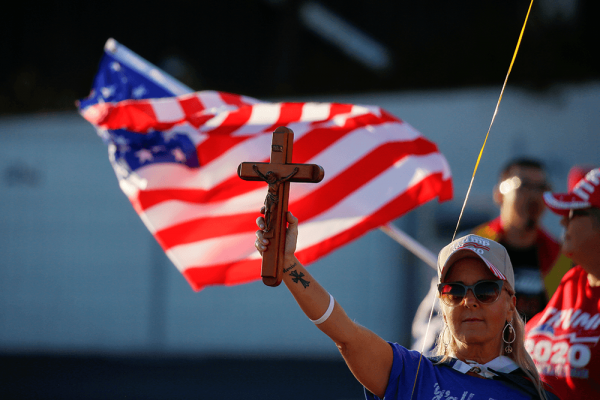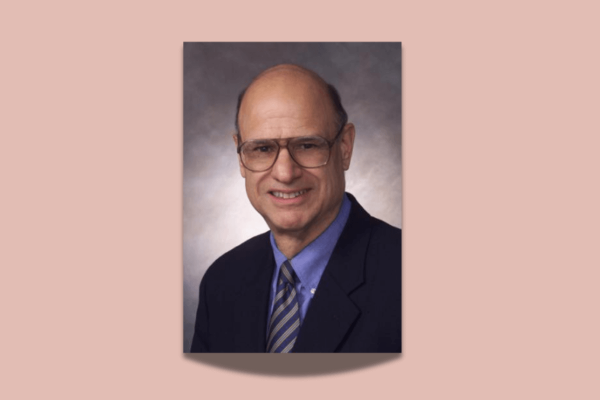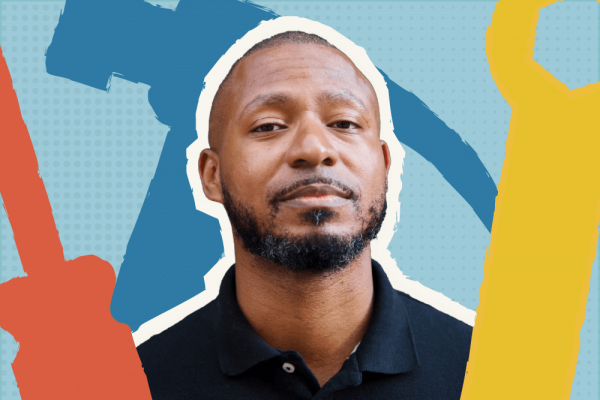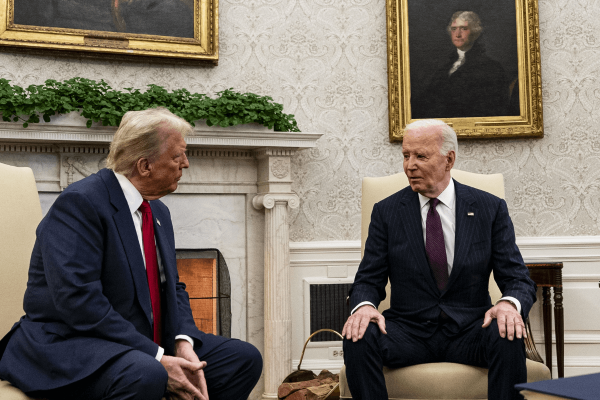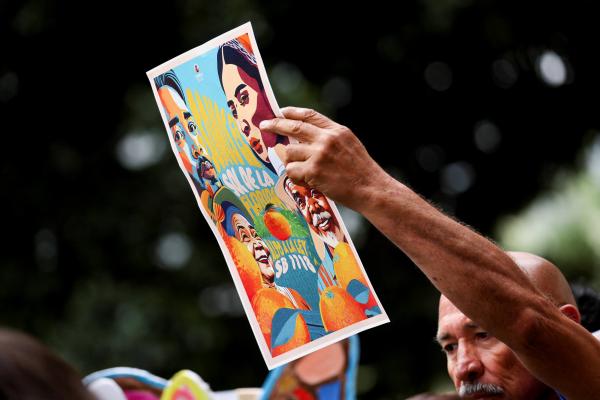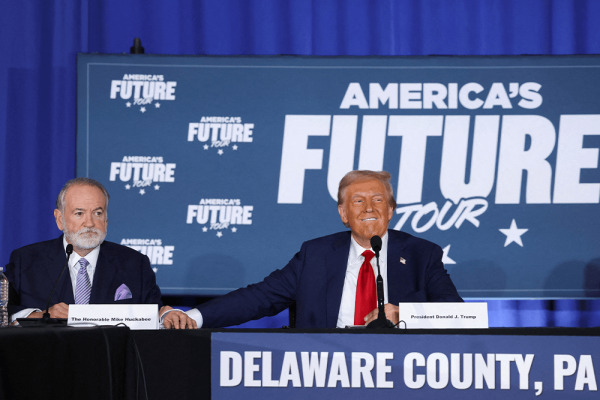For faith activists and leaders committed to continuing their work to oppose and resist Christian nationalism, President-elect Donald Trump’s return to the White House is disappointing but not a sign of total defeat. Ahead of Inauguration Day, many activists are continuing their coalition-building efforts and sounding the alarm on specific policies they believe Trump may sign executive orders on, day one in office.
A musical about Tammy Faye Messner, more widely known by her former name, Tammy Faye Bakker, seems odd at first. But the Broadway stage feels like the right place for the rise and fall of televangelism to play out. Televangelism, after all, is meant to be a spectacle. And its shadow of corruption, sex, and money only add to the theatrics of it all.
I always travel home for the holidays. No matter what the challenges — overbooked trains, cross-country road trips through winter snowstorms, a carpool with strangers from college, or crowded airports with angsty TSA agents — I always find a way.
I make this journey because, growing up, these autumnal gatherings were always a source of great joy. I was fortunate to grow up in a home whose greatest holiday struggles were finding enough chairs to seat every beloved guest and sliding in the finicky table extensions to accommodate the full spread of food. We played games, watched football, took long naps, and awoke to the miracle of more food.
For myself and others, these rituals continue today, but the holidays have evolved into an increasingly tense time.
Looking back now, a quarter century later, I see how Tony Campolo’s life shaped my own. When the political operatives of the New Right partnered with Jerry Falwell and other Southern Baptists to use Christian faith to rally a reactionary political movement in the 1970s, Tony understood what was happening.
I’ve followed Robert Monson’s work for years. Monson is a writer and theologian who focuses on Black theology, contemplation, and disability. He is also one of the first people outside my direct orbit to encourage my writing (not just my reporting), and I’ve always found him to be encouraging, joyful, and thoughtful.
Lately, as I have been reading Monson’s work, I’ve found that he is becoming rather soft. Now, before you think those are fighting words, I’ve thought this because it’s the term that Monson uses to describe himself and his aspirations as a man. He sees softness as an ethic to live into, a way of honoring his personhood and the personhood of others.
We are in for a difficult four years as a country. During the first four years of Donald Trump’s administration, I did not hesitate to call him a fascist, and looking ahead to his next four years, I am so worried about vulnerable people in this country. I am worried about immigrants. I am worried about queer people and trans kids. I am worried, yes, but I know that even in the most difficult time, miracles are possible.
The season is stuffed (pun fully intended) with stress, loved ones, and remembering to share our blessings with others. These films remind me of those feelings.
As a person of faith, I am deeply concerned about what the outcome of this election means, especially for those who will be most vulnerable to threats of mass deportations, retaliation against perceived political enemies, and other actions planned by the incoming administration. Yet we must not follow the example set by the president-elect and his followers: We can and should acknowledge the recent election results as legitimate, even if we are pained by them. I am hopeful that we can use this moment to break the fever of election denialism and rebuild trust in our election system — a shift that will be critical for future elections. Equally critical will be our commitment to advance justice and peace, a commitment that requires us to roundly reject the siren songs of violence, conspiracy theory, and anti-democratic methods.
During the presidential debate in September, then-Republican candidate and now President-elect Donald J. Trump propagated a Facebook rumor that Haitian immigrants in Ohio were stealing neighbors’ pets and eating them. While the rumor has since been debunked, anti-immigrant rhetoric like this makes it easier for lawmakers to drum up support for laws such as Florida’s SB 1718, a law that is meant to address illegal immigration.
When Florida’s Republican governor, Ron DeSantis, signed SB 1718 last year, he declared it “the strongest legislation against illegal immigration anywhere in the country.” When the bill was first proposed, it included some particularly cruel policies that would discourage immigrants from seeking access to basic services such as rides to church or medical care.
An evangelical Christian, Huckabee has been a vocal supporter of Israel throughout his political career and a longtime defender of Jewish settlements in the occupied West Bank. A former Republican presidential hopeful, Huckabee hosted a weekly Fox News TV show for six years ending in 2015.
